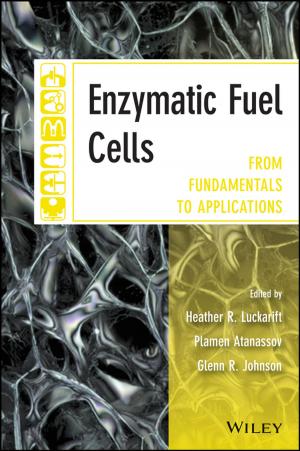FRET - Förster Resonance Energy Transfer
From Theory to Applications
Nonfiction, Science & Nature, Science, Chemistry, Physical & Theoretical| Author: | ISBN: | 9783527656042 | |
| Publisher: | Wiley | Publication: | October 17, 2013 |
| Imprint: | Wiley-VCH | Language: | English |
| Author: | |
| ISBN: | 9783527656042 |
| Publisher: | Wiley |
| Publication: | October 17, 2013 |
| Imprint: | Wiley-VCH |
| Language: | English |
Meeting the need for an up-to-date and detailed primer on all aspects of the topic, this ready reference reflects the incredible expansion in the application of FRET and its derivative techniques over the past decade, especially in the biological sciences. This wide diversity is equally mirrored in the range of expert contributors.
The book itself is clearly subdivided into four major sections. The first provides some background, theory, and key concepts, while the second section focuses on some common FRET techniques and applications, such as in vitro sensing and diagnostics, the determination of protein, peptide and other biological structures, as well as cellular biosensing with genetically encoded fluorescent indicators. The third section looks at recent developments, beginning with the use of fluorescent proteins, followed by a review of FRET usage with semiconductor quantum dots, along with an overview of multistep FRET. The text concludes with a detailed and greatly updated series of supporting tables on FRET pairs and Förster distances, together with some outlook and perspectives on FRET.
Written for both the FRET novice and for the seasoned user, this is a must-have resource
for office and laboratory shelves.
Meeting the need for an up-to-date and detailed primer on all aspects of the topic, this ready reference reflects the incredible expansion in the application of FRET and its derivative techniques over the past decade, especially in the biological sciences. This wide diversity is equally mirrored in the range of expert contributors.
The book itself is clearly subdivided into four major sections. The first provides some background, theory, and key concepts, while the second section focuses on some common FRET techniques and applications, such as in vitro sensing and diagnostics, the determination of protein, peptide and other biological structures, as well as cellular biosensing with genetically encoded fluorescent indicators. The third section looks at recent developments, beginning with the use of fluorescent proteins, followed by a review of FRET usage with semiconductor quantum dots, along with an overview of multistep FRET. The text concludes with a detailed and greatly updated series of supporting tables on FRET pairs and Förster distances, together with some outlook and perspectives on FRET.
Written for both the FRET novice and for the seasoned user, this is a must-have resource
for office and laboratory shelves.















